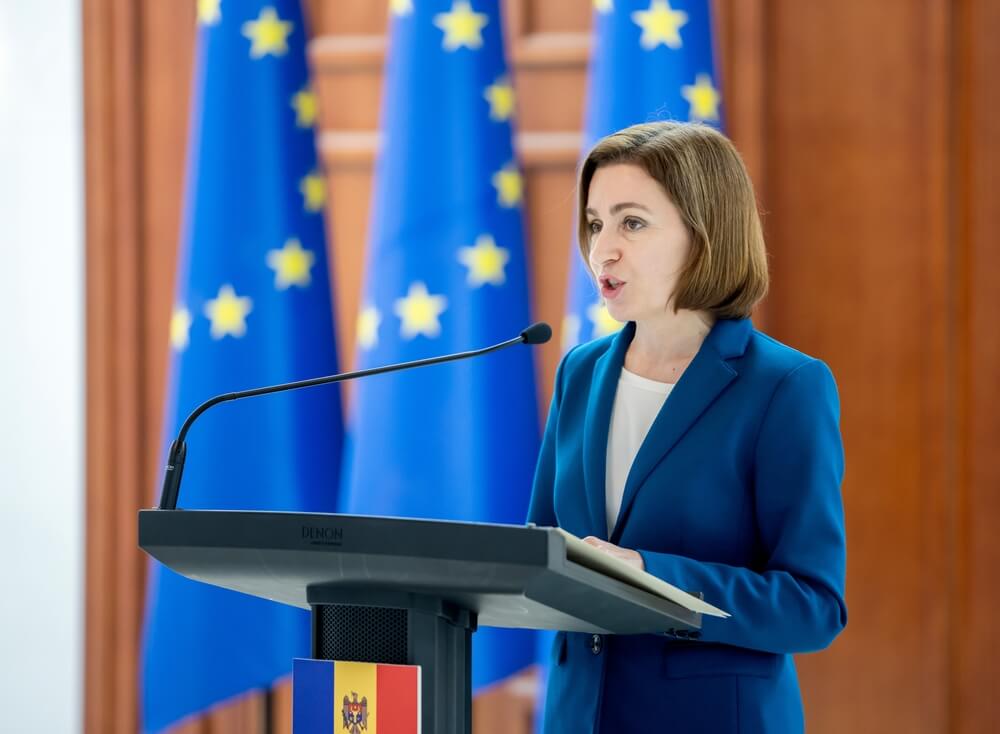Moldovan authorities have disregarded the gravity of disputed region Transnistria's requests for assistance and support from Moscow.
“It was a propaganda event,” said Oleg Serebrian, vice-president of Moldova’s pro-European government, regarding last week's request by the political representatives of the Transnistria region to Russia to protect them from what they said was pressure from Moldova.
The request came from the so-called Congress of Deputies, a Soviet-era representative body that rarely meets and brings together political representatives from various levels of government in Transnistria.
This gives it an air of informality, which is why the Moldovan government considered it no more than propaganda.
However, this institution decided on the independence of Transnistria in 1990, which 2 years later led to a short, armed conflict between pro-Russian separatists and Moldovan forces.
A historical analogy warns that the spark of conflict could come from the decisions of the Congress of Deputies, even though the Moldovan government places little importance on it.
In 2006, the same body announced the farce of the referendum in which about 98% of the citizens of Transnistria voted for independence from Moldova and the possibility of integration with Russia.
No international actor has ever recognised these results, but they remained the basis of some future solutions.
More than economic aid
Russia's invasion of Ukraine has created an environment for the potential reactivation of some past decisions in the Moldovan disputed area.
Pro-Russian puppets in Transnistria "limited" their call for help by last week's decision on the economic domain, irritated by the decision of the central authorities in Chisinau, the capital of Moldova, that they must pay import duties to the state budget.
In an address to both houses of the Russian parliament, the delegates from Transnistria requested that Moscow "implements diplomatic measures to protect Transnistria in the face of increasing pressure from Moldova".
The model by which the case of Transnistria has been unfolding is highly similar to the introductions to some of Russia's earlier aggressive actions
The Russian Ministry of Foreign Affairs reacted rapidly and favourably to that request, stating that "protecting the interests of the inhabitants of Transnistria, their compatriots, was one of the priorities" for Moscow.
The model by which the case of Transnistria has been unfolding is highly similar to the introductions to some of Russia's earlier aggressive actions.
As in the case of its attack on Georgia in 2008, Moscow has found a reason to protect its population from pressures and threats from central authorities.
They applied the same recipe to the Ukrainian peninsula of Crimea in 2014 and then to the eastern areas where conflicts are still taking place today.
Appearance of legitimacy - an excuse for aggression
Decisions of some representative body made up of advocates of union with Russia have always preceded Russian military actions.
They are not bodies that represent the authentic will of the local population, but of structures and leaders established by the Russian state, with the task of producing quasi-legal conditions for a future invasion (referendums, for example).
That is why the address of the Transnistrian Congress to Moscow is not just an appeal for economic aid. It is a significant political precondition that serves as proof of legitimacy for Moscow for any of its future aggressive moves towards the disputed territory of Moldova.
This move of the Transnistrian Congress, obviously synchronised with the Russian authorities, has opened a new phase in Moscow's pressure on Moldova, which has recently become a candidate for EU membership.
Since the start of the invasion of Ukraine, Moldova has been the closest and easiest prey for aggressive Russian expansion in the former Soviet space
Since the start of the invasion of Ukraine, Moldova has been the closest and easiest prey for aggressive Russian expansion in the former Soviet space.
The pro-European government in Chisinau was exposed to significant internal pressure through mass street protests organised by the pro-Russian party Shor.
That pressure was combined with restrictions on the supply of Russian gas at high prices, with the aim of creating hostility among the population towards the government's policy.
Risky elections in Moldova
Transnistria's request for assistance from Russia comes at a political turning point in Moldova, with presidential elections set for the autumn.
The pro-European president Maia Sandu announced that she will run for office and has played all her cards on the EU future for her country. She has requested a referendum at the same time as the elections, where the citizens would declare whether they are in favour of joining the EU.
 The pro-European president Maia Sandu announced that she will run for office and has played all her cards on the EU future for her country
The pro-European president Maia Sandu announced that she will run for office and has played all her cards on the EU future for her country
A new wave of pressure from Moscow, which certainly does not want a pro-European government and president in Chisinau, will mark the period leading up to those events.
The head of diplomacy, Sergei Lavrov, confirmed last December that Russia has not given up its claims to Moldova.
"Moldova is destined to fall the next victim in the West-unleashed hybrid war against Russia”, Lavrov said then, clearly drawing a parallel with Ukraine and its aspiration to join the EU, which is why Russia launched a military intervention.
The call for "fraternal" help that came from the disputed Moldovan region is only an echo of the decision that has already been made in Moscow and will be activated when necessary for Russia's military plans in Ukraine.